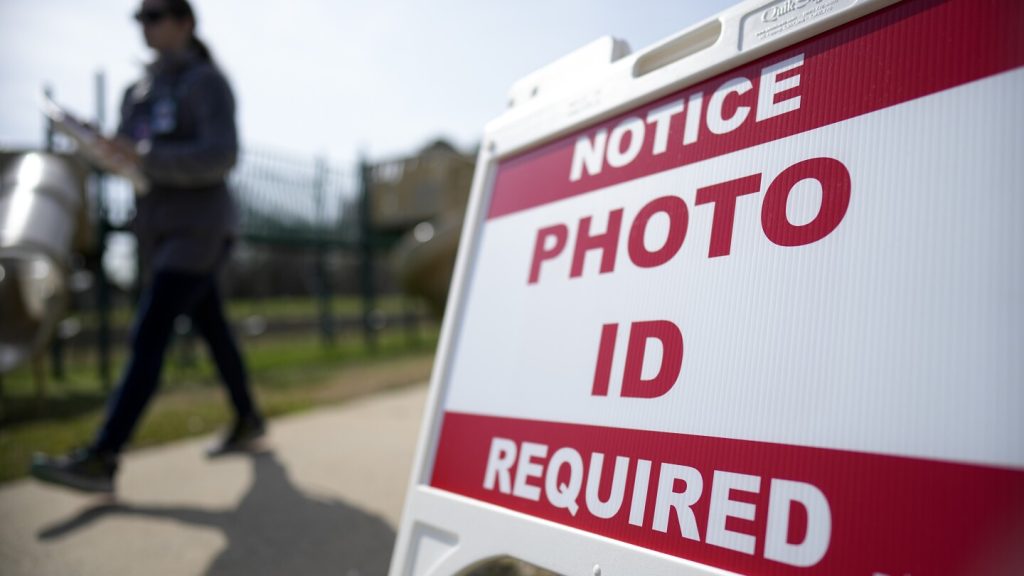The trial for a federal lawsuit challenging North Carolina’s photo voter identification law is set to begin on Monday in Winston-Salem. The lawsuit, brought by the state NAACP and several local chapters, argues that the law unlawfully discriminates against Black and Hispanic citizens. This litigation has delayed the implementation of the requirement until last year’s municipal elections and the March primaries, where fewer than 500 provisional ballots were cast due to ID-related issues. The upcoming general election in November, which could see three times greater turnout, is crucial in a presidential battleground state like North Carolina.
The NAACP lawyers assert that the voter ID requirement, along with other provisions in the 2018 law, violate the U.S. Constitution and the Voting Rights Act due to discriminatory intent. They plan to present data showing that Black and Latino voters are more likely to lack a qualifying photo ID compared to white voters. The lawyers argue that rushing the legislation without considering its impact on minority voters is unconstitutional and will prevent thousands of North Carolinians from voting. However, attorneys representing Republican legislative leaders and State Board of Elections members defend the law, stating that it imposes minimal burden on voters and serves the legitimate state interest of preventing voter fraud.
U.S. District Judge Loretta Biggs, who has frequently ruled in this case, is expected to preside over the trial, signaling that she will not immediately rule from the bench. Biggs had previously issued a preliminary injunction blocking enforcement of the law in 2019, but the decision was reversed by the 4th U.S. Circuit Court of Appeals. The state Supreme Court’s determination that the photo ID law complied with the state constitution has opened the door for the trial to proceed. Thirty-six states have laws requiring identification at the polls, and 21 of them seek photo ID, according to the National Conference of State Legislatures.
The trial is expected to last several days, with witnesses set to testify about their voting experiences in the March primary. If the NAACP secures a favorable ruling from Judge Biggs, the photo ID requirement could be blocked for the November general election. Given North Carolina’s status as a crucial swing state, the outcome of this trial could have significant implications for the state and the nation as a whole. The debate over voter ID laws continues to be contentious, with proponents arguing that they are necessary to prevent fraud and ensure election integrity, while critics claim they disenfranchise minority and marginalized communities.
Regardless of the trial’s outcome, the issue of voter ID laws is likely to remain a topic of discussion and debate in North Carolina and across the country. The legal battle over the constitutionality of these laws underscores the importance of protecting the right to vote for all citizens, regardless of race or ethnicity. As the trial unfolds, the arguments and evidence presented will shed light on the impact of voter ID requirements on minority communities and the overall integrity of the electoral process. The decision in this case could set a precedent for future challenges to voter ID laws in other states and shape the course of voting rights advocacy in the United States for years to come.


